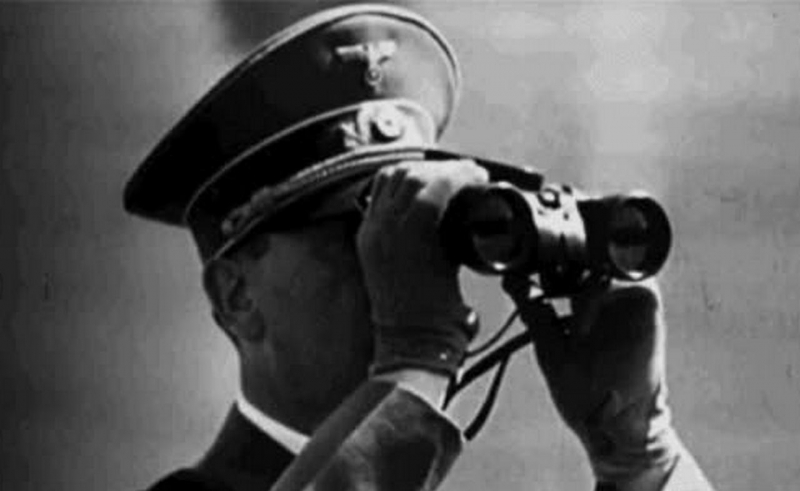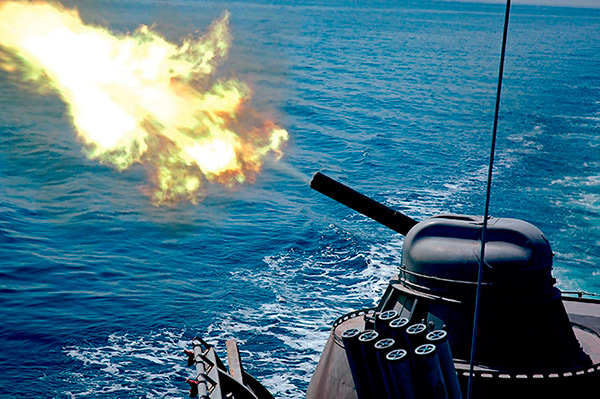It is imperial, and not ideological tasks predetermined for Hitler the main direction of expansion - the Soviet Union; Consequently, not the "Jewish-Bolshevik" character of the Soviet Union was the reason for the installation of a war against Russia.

certainly, Nazi Germany and Imperial Japan are primarily responsible for World War II. Moreover, in both cases, there were good reasons for the start of aggression.. These reasons lie in the true (or imaginary - it doesn't matter) geopolitical dead ends, with that difference, that for Japan they were already relevant, and for Germany potential. It is extremely rare for a politician to, that at the very beginning of his career, Hitler at Mein Kampf openly formulated the meaning of his future geopolitics and consistently put these plans into practice. In what, properly, consisted of this plan and what arguments in its favor Hitler gave?
The main thing was Hitler's conviction, that if the population growth rate in Germany continues, one day the moment will come, when the available German territory is not able to feed this population. This situation, in his view, should have been avoided at all costs.
Hitler once said something like the following: Better to let three million soldiers die in the east in the war for the land, than 30 million Germans will starve to death. In this regard, it is also important, that the synthesizing principle of Hitler's worldview was history, which he understood exclusively as the struggle of peoples for "living space". From this position, Hitler perceived politics, which for him was just a means of realizing this struggle; due to this single important goal of politics, the difference between war and peace, Between foreign and domestic politics, Hitler lost its traditional distinctions.
In February 1939 of the year, speaking to the commanders of the Wehrmacht, Hitler stated: "I intend to resolve the German question, that is, to solve the problem of German territory. Keep in mind, that while i'm alive, this idea will completely own my being. And still be sure, what, as i guess, when at some point you need to take a step forward, then I will immediately begin to act and at the same time I will not be afraid to go to the very extreme, because I am convinced, that this issue must be resolved one way or another ". Hitler thought it possible to feed the country's growing population, if in the future it is possible to annex the territory to the Reich in 500 thousand. km² (this is the size of the territory of France).
Died for 50 years before Hitler was born English economist Thomas Malthus (1766–1834) recommended late marriages as a remedy for overpopulation, birth control and intensive agricultural development. Malthus's theory was based on the premise, that the food supply on the market is growing at an arithmetic progression, and population growth is exponential. This discrepancy in the growth of various indicators leads to an ever-widening gap between the number of people living and the production of the necessary food..
According to Malthus, theoretically quite realistic, that in the end the time will come, when food is scarce, to feed everyone. In reality, only Japan was in the "Malthusian trap" before the war. (that's why she started the war, in which the United States was simply doomed to win, given the state of resources), for Germany, this trap was in the distant future, as it turned out, false.
Hitler found Malthus's idea congenial, since in Germany, with the growth of the population, its density also increased: if in 1871 year per square km accounted for 56 residents of Germany, to the 1910 year - 120 (in Germany - 245 human, for comparison in the USA - 16 at the end of the twentieth century). In addition, there was constant talk of food shortages., About, that you have to import it. Hitler sought a solution to the transference problem exclusively in a war of conquest.; unlike Malthus, Hitler did not warn against overpopulation, but wanted him, to encourage people to act and subjugate other nations.
Hitler's system of views on the problem of "living space" was a bizarre conglomeration of scientific theories, pseudoscientific views, racial prejudice, contemporary political economy, geopolitics, theories of imperialism. The conquest of the "living space" was the task of mid-term planning, the long-term goal was the conquest of world domination and global hegemony.
The "living space" thesis played the role of a party integration tool, as well as a significant advocacy role. properly, Hitlerite geopolitics based on racial doctrine was the idefix of the Fuehrer, the concentration of all his plans. It is difficult to assess it positively., for she ignored the interests and existence of other nations; she testified to the integrity of the approach to the imaginary problem, but in the coordinates of false values. Truly Bismarck once said, that “in politics, myopia is better, than farsightedness ".
In October 1941 years Hitler spoke, that the "living space" captured in Russia, apparently, will provide autarky for Europe: “Where else will we find the area, having iron of such high quality as Ukrainian? Where else is there so much nickel, coal, manganese, molybdenum? These are the same manganese mines., from which America receives ore. In addition, there is the possibility of breeding rubber plants! If their sown area is brought to 40 thousand. it, then we will cover all our rubber needs ".
Hitler spoke especially "penetratingly" about Soviet wealth in an interview with the Dutch Nazi Mussert.: "At the disposal of the east, apparently, there are huge reserves of raw materials, whether in agriculture or in relation to ore deposits. Russia, certainly, richest country on earth. Let's remember at least the iron ore deposits of Kerch, about oil reserves, about rare metals and so on. Besides, Russia has, probably, the most important raw material is man ".
In this way, clear, what exactly imperial, and not ideological tasks predetermined for Hitler the main direction of expansion - the Soviet Union; Consequently, not the "Jewish-Bolshevik" character of the Soviet Union was the real reason for Hitler's adoption of the programmatic target of the war against Russia. The decision to start this war was taken regardless of this., although, of course, Hitler managed to use anti-Bolshevik propaganda as an additional justification for his conquest goals in the east.
It is also important to note, that since the West was also "overpopulated", then Hitler had no goals there and Germany was drawn into the war there for various reasons, which need to be discussed separately.
As a result, after World War II, millions of Germans were expelled from their historical homeland.; boundaries, arranged by Bismarck, collapsed, and the German borders were moved far to the West. Hitler's geopolitics meant the end of the German colonization and, in some way, cultural-trager role in Europe, especially in Eastern Europe: most of 18 million Germans in the east after 1945 the year was in flight, 1,71 million of them died; of 12,45 million German refugees 7,9 million settled in Germany, 4,065 million - in the GDR, 370 thousand. - in Austria, 115 thousand. - in other countries.
It took the Germans more than a quarter of a century to, to find the strength and reconcile to the chancellorship of Willie Brandt with territorial losses in the east. everything, what Hitler planned for other peoples, turned against the Germans themselves: almost the entire German population of Eastern Europe (more 12 million people) was evicted; this was the largest resettlement in the foreseeable human history.
From a historical perspective, Hitler's imperial policy turned out to be false not only due to its completely obvious obscurantist attitudes, but also essentially: after the war, at the turn of the 1950s-60s, there was a "green revolution", which (coupled with the changed demographic situation) radically changed the situation.
Whereas before the First World War, Germany was constantly experiencing a severe deficit in agricultural production: 28% was a lack of protein, about 20% - lack of calories; food supply crises continued into the 1930s, turning into a real nightmare for Hitler.
In the second half of the twentieth century, everything changed: food market in the West is oversaturated. Therefore, Hitler's expectations of a food catastrophe now seem ridiculous., and his geopolitics from the height of the experience of the beginning of the XXI century appears to be complete nonsense.
Many German contemporaries of Hitler, looking the same, How is he, on a geographic map, thought, that their country is too small for the then population of Germany, but these dimensions are important only when extensive, not high-tech development. Now, after the green revolution, 4-5% of German farmers meet the country's food needs by more than 70%, at the same time, their share in GNP compared to pre-war times is negligible.
Hitler compared the wealth and power of the state with the size of its territory, overlooking a much more important factor: industrial revolution, after which the welfare and power of the state no longer depended on the size of land holdings, but on the state of technology and the scale of its development. A large area for the development of the high-tech industry, conversely, seems like an obstacle (richest - Switzerland, Sweden, Denmark is a small country), not an advantage. It was precisely because of the absence or insufficiency of high technologies that the USSR was never able to take advantage of the country's enormous natural resources..
Oleg Plenkov











